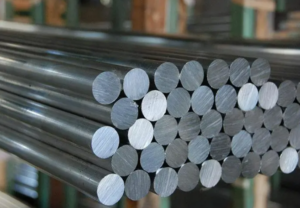Monel 400, a nickel-copper alloy, holds a distinctive place in the vast realm of metallurgy and material science. Its unique combination of physical and chemical properties makes it an ideal choice for various industrial applications. The American Society for Testing and Materials (ASTM) has set forth the standard for Monel 400, ensuring its quality and performance across diverse applications.

What is the standard for Monel 400 ASTM?
ASTM standards for Monel 400 primarily govern the chemical composition, mechanical properties, and fabrication processes of the alloy. Among these, ASTM B165 is a widely recognized standard for Monel 400 seamless steel tubes. This standard specifies the requirements for seamless tubes made from Monel 400 alloy, covering their chemical composition, mechanical properties, dimensions, and surface finish.
The chemical composition of Monel 400, as stipulated in ASTM B165, typically comprises nickel (≥63%), copper (28.0-34.0%), and small amounts of iron (≤2.5%), carbon (≤0.30%), manganese (≤2.0%), silicon (≤0.50%), and sulfur (≤0.024%). This composition ensures the alloy’s high strength, ductility, and corrosion resistance.
Moving on to the mechanical properties, ASTM B165 requires Monel 400 seamless tubes to meet specific tensile strength, yield strength, and elongation requirements. The tensile strength of Monel 400 tubes is typically between 489 and 495 MPa, with a minimum requirement of 480 MPa. Similarly, the yield strength should be between 201 and 205 MPa, with a minimum requirement of 195 MPa. The elongation at break, indicating the alloy’s ductility, should be at least 35%, with actual values often ranging from 38% to 42%.
ASTM B165 also specifies the dimensional requirements for Monel 400 seamless tubes. The standard covers tubes with outer diameters ranging from 10 mm to 762 mm and wall thicknesses from 1.0 mm to 150 mm. This wide range of dimensions caters to the varying needs of different industrial applications.
Apart from ASTM B165, there are other ASTM standards governing Monel 400 alloy, including ASTM B127, B163, B164, B564, B725, B730, B366, AMS 4675, 4730, AMS 4544, and 4731. These standards cover different forms of Monel 400, such as sheets, bars, forgings, and fasteners, and specify their respective requirements for chemical composition, mechanical properties, and other parameters.
The significance of ASTM standards for Monel 400 lies in their ability to ensure consistent quality and performance across different products and applications. By adhering to these standards, manufacturers can guarantee that their Monel 400 products meet the rigorous demands of various industries, from chemical processing to marine engineering.
In addition to ASTM standards, Monel 400 is also governed by other international standards, such as UNS N04400, DIN 2.4360, and EN NiCu30Fe. These standards offer additional guidance on the alloy’s properties and applications, further enhancing its global acceptance and use.
Conclusion
In conclusion, ASTM standards for Monel 400, particularly ASTM B165, provide a robust framework for ensuring the quality and performance of this remarkable alloy. By meeting these standards, manufacturers can deliver Monel 400 products that are reliable, durable, and capable of meeting the challenges of the most demanding industrial environments.
Thank you for reading our article and we hope it can help you to have a better understanding of the standard for Monel 400 ASTM. If you are looking for Monel 400 suppliers and manufacturers online now, we would advise you to visit Huaxiao Alloy.
As a leading supplier of Monel alloy from Shanghai China, Huaxiao Alloy offers customers high-quality Monel 400 at a very competitive price.



